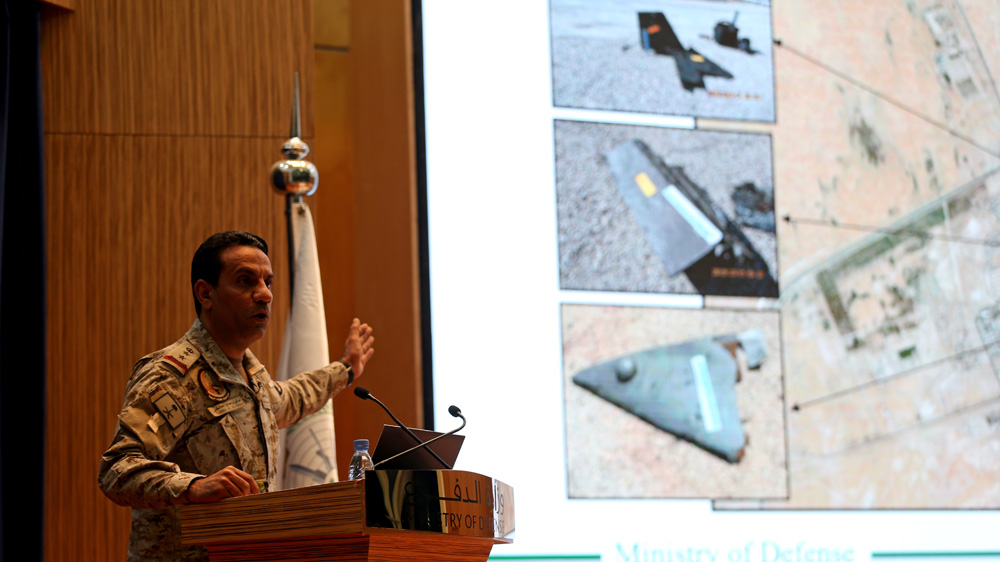US supports Saudi ‘right to defend itself’: Pompeo
In meeting with Mohammed bin Salman, the secretary of state said Iran’s behaviour would ‘not be tolerated’.

US Secretary of State Mike Pompeo has backed Saudi Arabia‘s “right to defend itself” and said that Iran‘s behaviour would “not be tolerated”, in a meeting with Crown Prince Mohammed bin Salman (MBS), according to a statement on his official Twitter account on Thursday.
Pompeo again condemned the weekend attack on Saudi oil fields that knocked out half of the country’s oil production. The US top envoy has also supported the Saudi call for international experts to travel to the country to investigate, the Saudi news agency SPA said in a separate statement.
Keep reading
list of 4 itemsSaudi Arabia’s Riyadh selected to host World Expo in 2030
Qatar’s emir receives Saudi Arabia’s foreign minister on an official visit
Saudi Arabia’s e-sports looking to nurture its own hit games
In the meeting, MBS told Pompeo the attacks on state oil company Saudi Aramco were aimed at destabilising security in the region and damaging the global supply of energy.
Speaking to reporters on his way to Jeddah, Pompeo had described the raids on key oil installations as an “act of war” and reiterated that it was an “Iranian attack”.
Iran has repeatedly denied it was behind the attacks that have heightened tensions in the region.
Met with #Saudi Crown Prince Mohammed bin Salman today to discuss the unprecedented attacks against Saudi Arabia’s oil infrastructure. The U.S. stands with #SaudiArabia and supports its right to defend itself. The Iranian regime’s threatening behavior will not be tolerated.
— Secretary Pompeo (@SecPompeo) September 18, 2019
Yemen’s Houthi rebels, who have been locked in a war with a Saudi-UAE-led coalition since 2015, has claimed responsibility for the attacks, warning Riyadh that their targets “will keep expanding”.
But Saudi and US officials have said that evidence shows Iranian involvement.
Just before Pompeo’s comments, Saudi military officials held a news conference and showed debris from the alleged weapons used during the attacks, saying there was “undeniable” evidence of Iranian aggression.
A defence ministry spokesman said there was no way the attacks could have been launched from Yemen.
“The attack was launched from the north and unquestionably sponsored by Iran,” Saudi Colonel Turki al-Malki said. “We are working to know the exact launch point.”
Al-Malki did not directly blame Iran for the attack when asked by journalists. He said once “the culprits” were identified they would “be held accountable”.

Trump and Saudi officials have stressed the need for caution in their response to the attacks. The US president has said he does not want war and is coordinating with the Gulf and European states.
Hillary Mann Leverett, chief executive of political risk consultancy Stratega and a former US diplomat, told Al Jazeera the Saudis use of the word “sponsorship” indicated a certain level of caution amid its current diplomatic isolation.
“They have no guarantee the US will back them up to retaliate against Iran or anyone else,” she said. “They are in a really tough position with very few options. They are trying to lay out what evidence they can but there is a lot of doubt here in Washington, and I think around the world, about what the Saudis have to say given their record with Yemen, the Khashoggi killing and other issues.”
Earlier on Wednesday, Trump said he ordered a major increase in sanctions on Iran, but gave no details.
|
|
It is not clear yet what Pompeo’s comments mean for the US response to the attacks.
US media, citing unnamed US officials, reported on Tuesday that evidence showed Saturday’s attacks originated in southwestern Iran.
Three officials said they involved cruise missiles and drones, indicating a higher degree of complexity and sophistication than initially thought. The US has not made its evidence public.
The officials also did not provide evidence or explain what US intelligence they were using for evaluating the attack, which cut five percent of the world’s oil production.
The new violence has led to fears that further action on any side could rapidly escalate a confrontation that has been raging just below the surface in the wider region in recent months.
In June, Trump called off a military attack on Iran at the last minute after Tehran shot down an unmanned US military drone. Iran maintains the drone was in Iranian airspace. The US says it was in international territory.
Those tensions have been boiling since Trump pulled the US out of the 2015 nuclear agreement that curtailed Tehran’s nuclear activities, and reimposed sanctions that sent Iran’s economy into a tailspin.